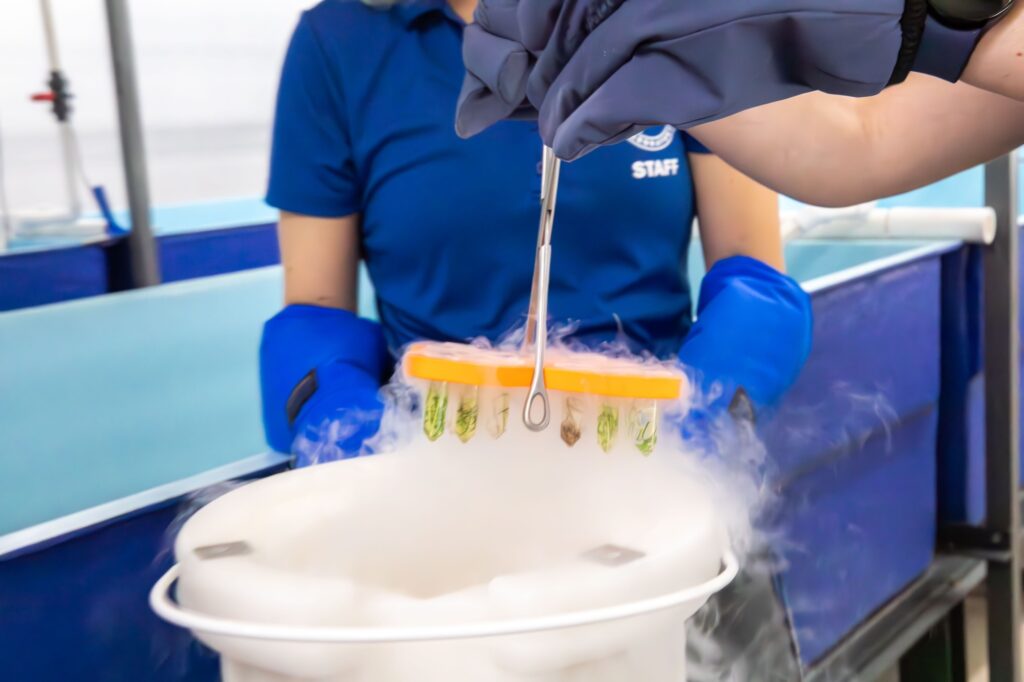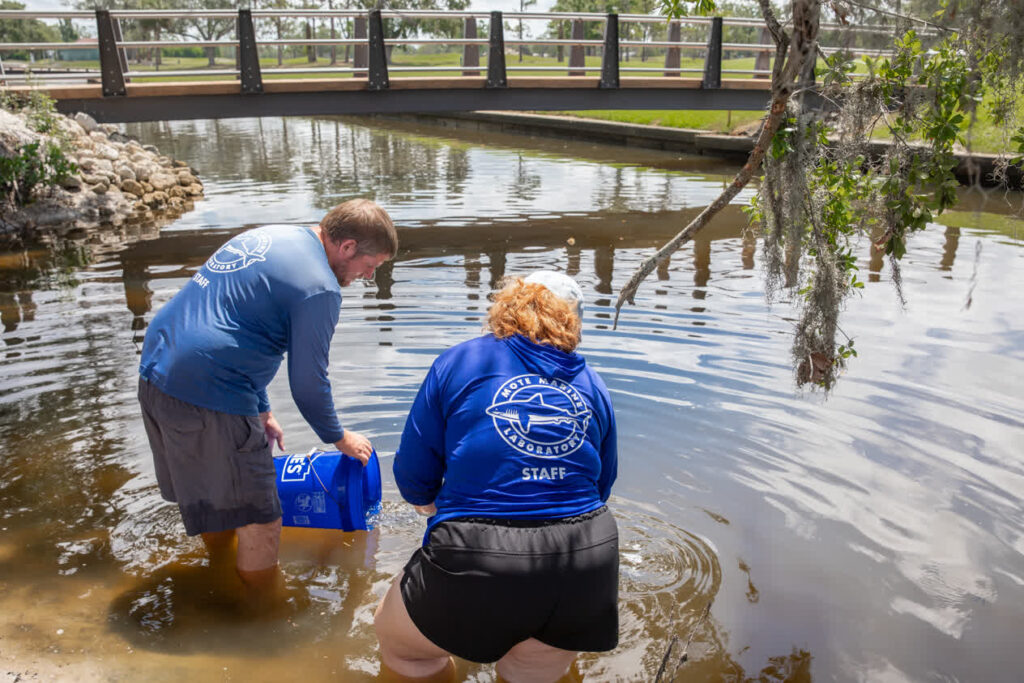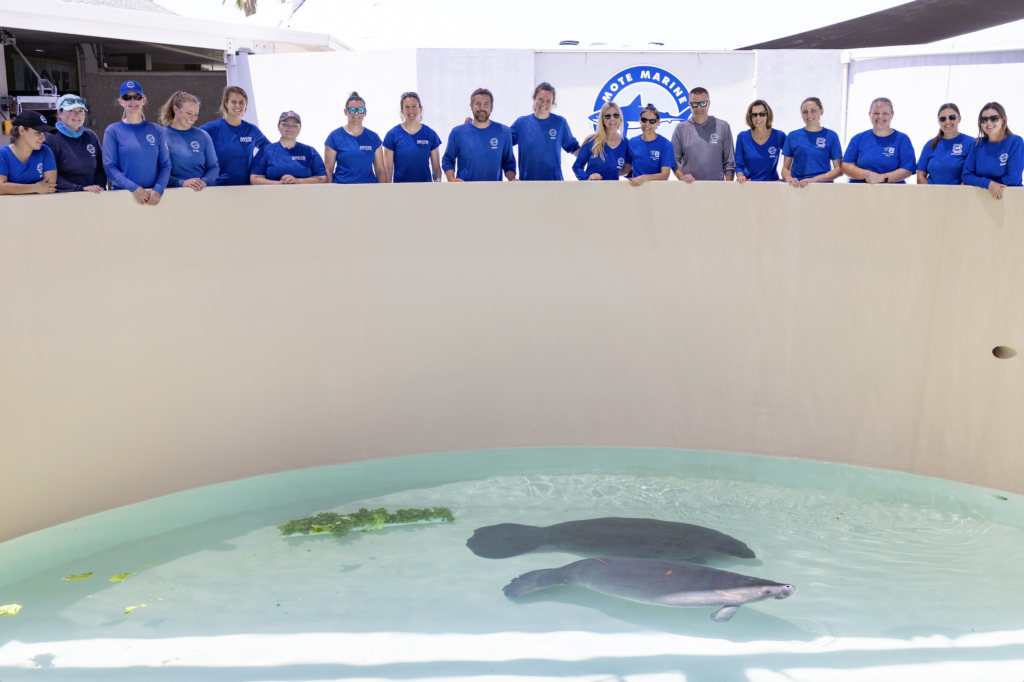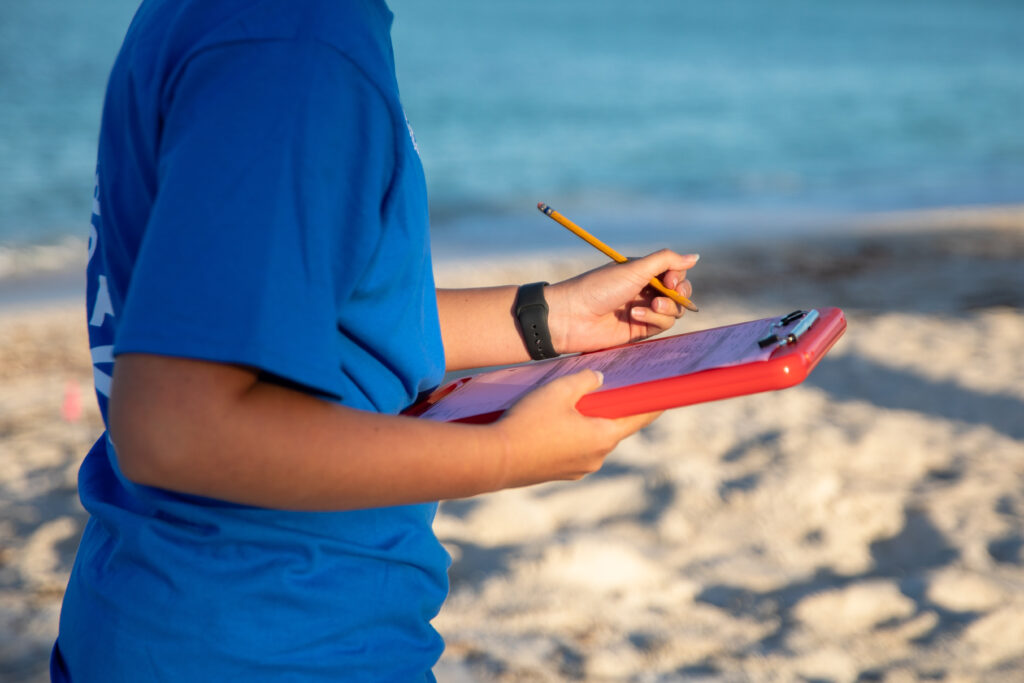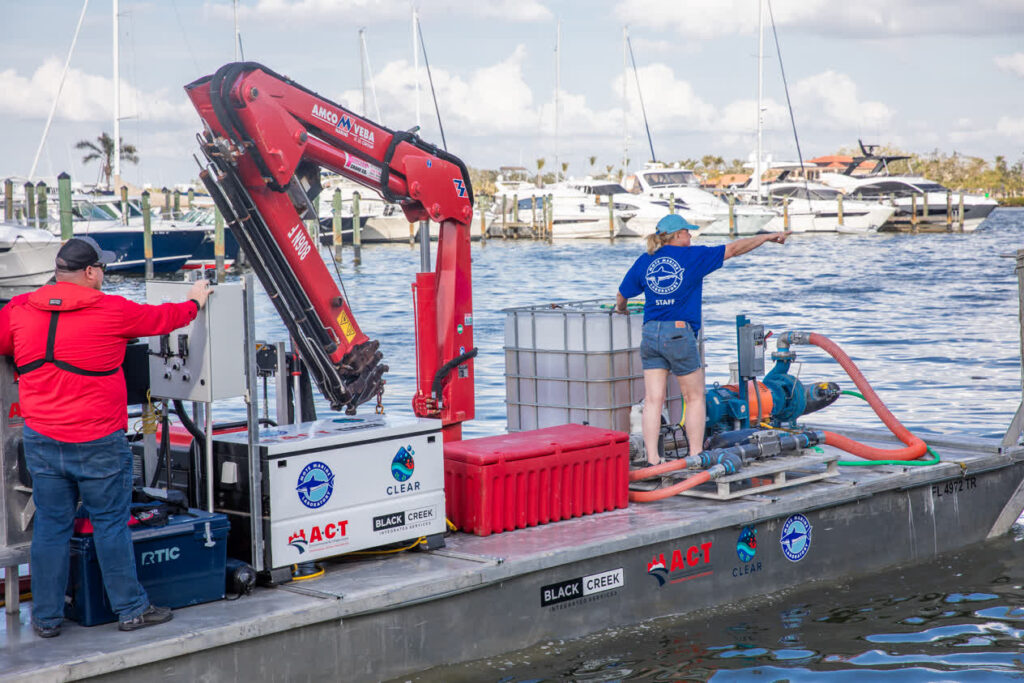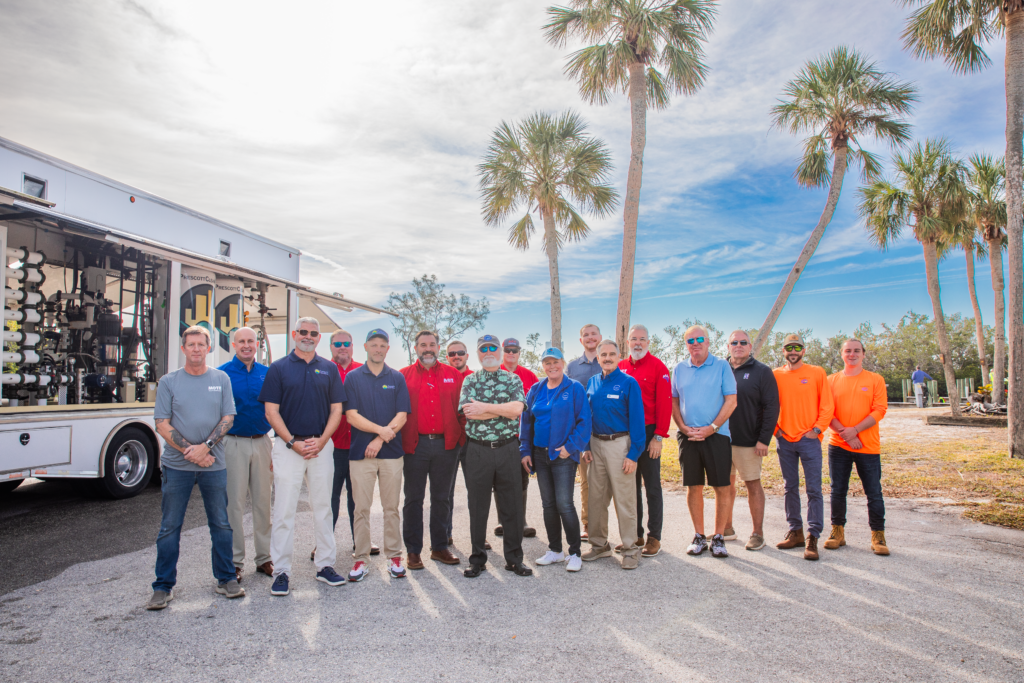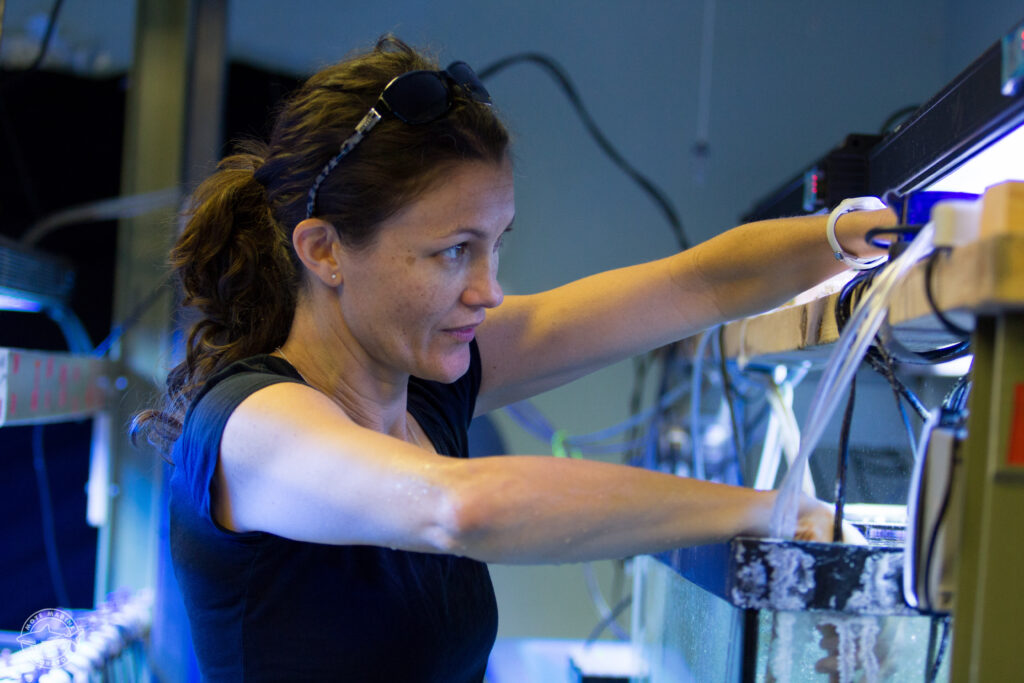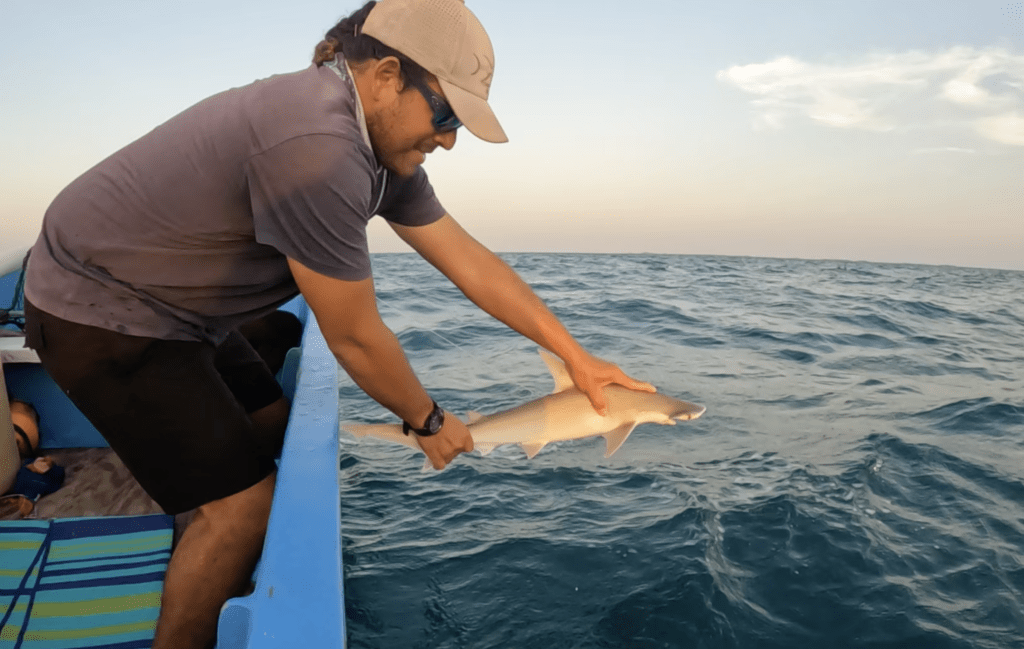Skip to content
You are using an outdated browser. Please upgrade your browser to improve your experience.
Mote Aquarium on City Island, Sarasota, is closed to visitors as we turn our full attention toward preparing to open Mote Science Education Aquarium (Mote SEA).
FAQ about Mote SEA
Mote Contributor
Kathryn Gentile
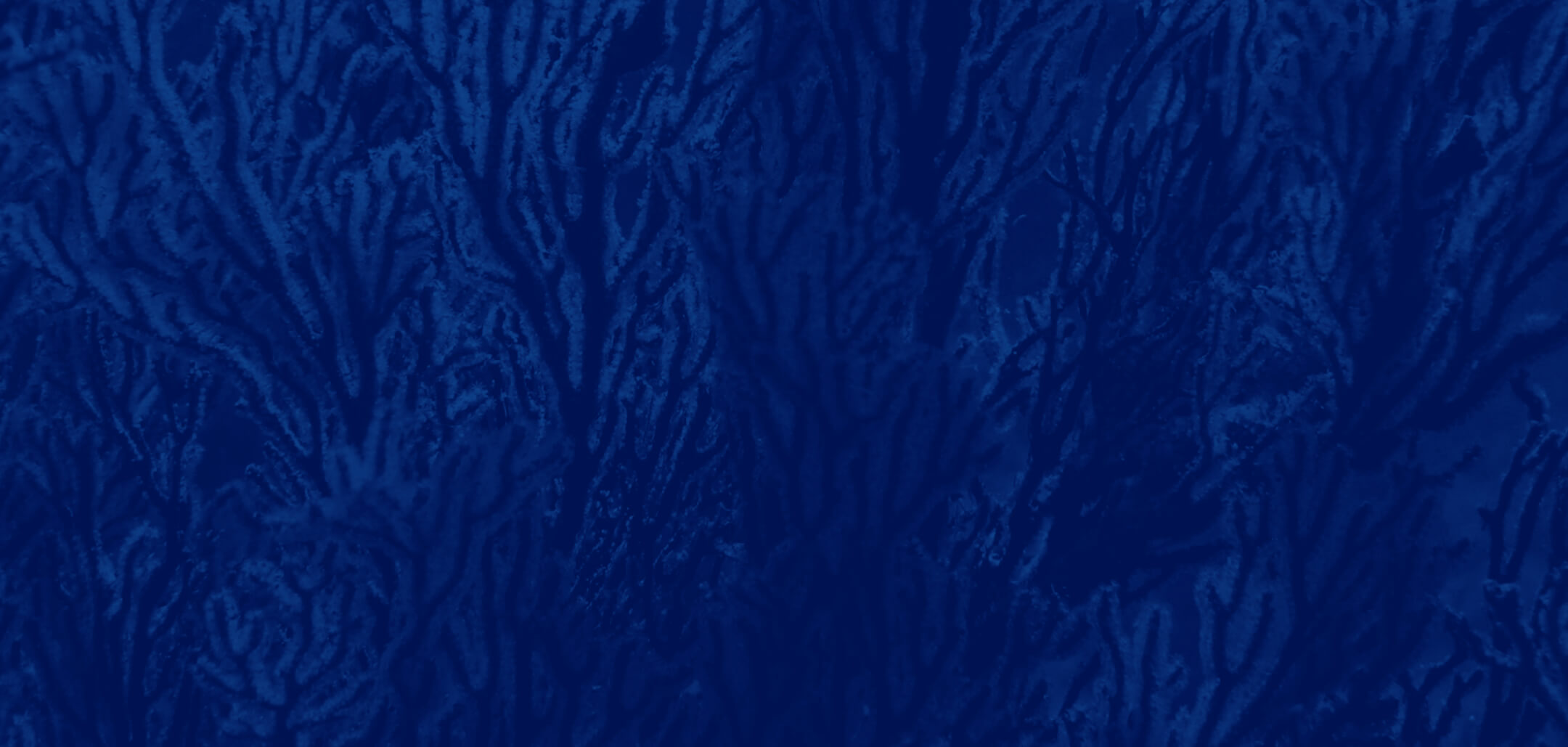
Seagrasses play a crucial role in the health and resilience of Florida’s coastal ecosystems. They provide nursery habitats for keystone species and stabilize shorelines and sediments. Seagrasses contribute significantly to environmental health by filtering excess nutrients from the water (which improves...
Mote Marine Laboratory & Aquarium recently completed the largest single snook release in the history of its fisheries enhancement program, deploying 28,000 juvenile fish across strategic estuaries in Sarasota County over an eight-day period. This release more than doubled the program’s previous...
Mote Marine Laboratory & Aquarium is proud to announce the arrival of its first two manatee rehabilitation patients, Cabbage and Sleet, marking a major milestone in manatee conservation. This transfer signifies the launch of Mote’s role as a secondary care holding facility for manatee rehabilitation...
Mote Marine Laboratory is excited to announce that its Sea Turtle Conservation and Research Program (STCRP) documented the first local turtle activity of the 2025 season! On Saturday, April 26, STCRP’s Sea Turtle Patrol reported three loggerhead (Caretta caretta) sea turtle nests — one each on Longboat...
Mote Marine Laboratory’s International Coral Gene Bank (Gene Bank) has recently achieved significant milestones in coral restoration and marine conservation, paving the way for a more promising future for coral reefs in Florida and around the world.
Some of these achievements include:
Advancing...
On Friday, February 14, Mote Marine Laboratory and partners successfully conducted the first-ever field test deployment of two Florida Red Tide Mitigation and Technology Development Initiative products and technologies to an active red tide bloom.
The two products, Mote’s CLEAR and Heartland Energy...
Mote Marine Laboratory is excited to announce that three promising red tide mitigation technologies have completed rigorous laboratory testing and received regulatory approvals to begin the field deployment research stage. These advancements mark a significant milestone in the fight against Florida’s...
A pioneering study led by Mote Marine Laboratory, in collaboration with the Florida Fish and Wildlife Conservation Commission-Fish and Wildlife Research Institute (FWC-FWRI) and the U.S. Geological Survey (USGS), has uncovered a potential critical link between harmful algal blooms (HABs) and acidification...
Researchers from Mote Marine Laboratory, Florida International University, University of Miami and many scientists across the globe have discovered two areas of concern after analyzing small shark fins from Hong Kong markets — small coastal species are much more common in the international fin trade...
A hammerhead shark species discovered by scientists finally has a name and its namesake is the late Paul G. Allen, philanthropist and co-founder of Microsoft.
The existence of the new species, Sphyrna alleni, was hidden because it looks so similar to another species, the bonnethead shark, Sphyrna...


